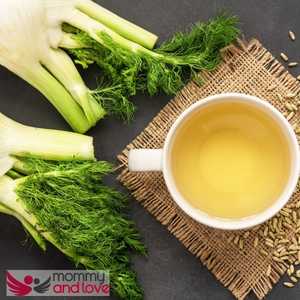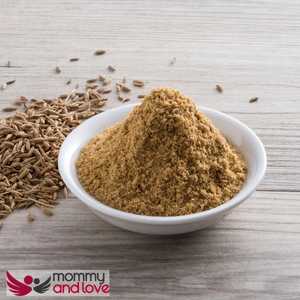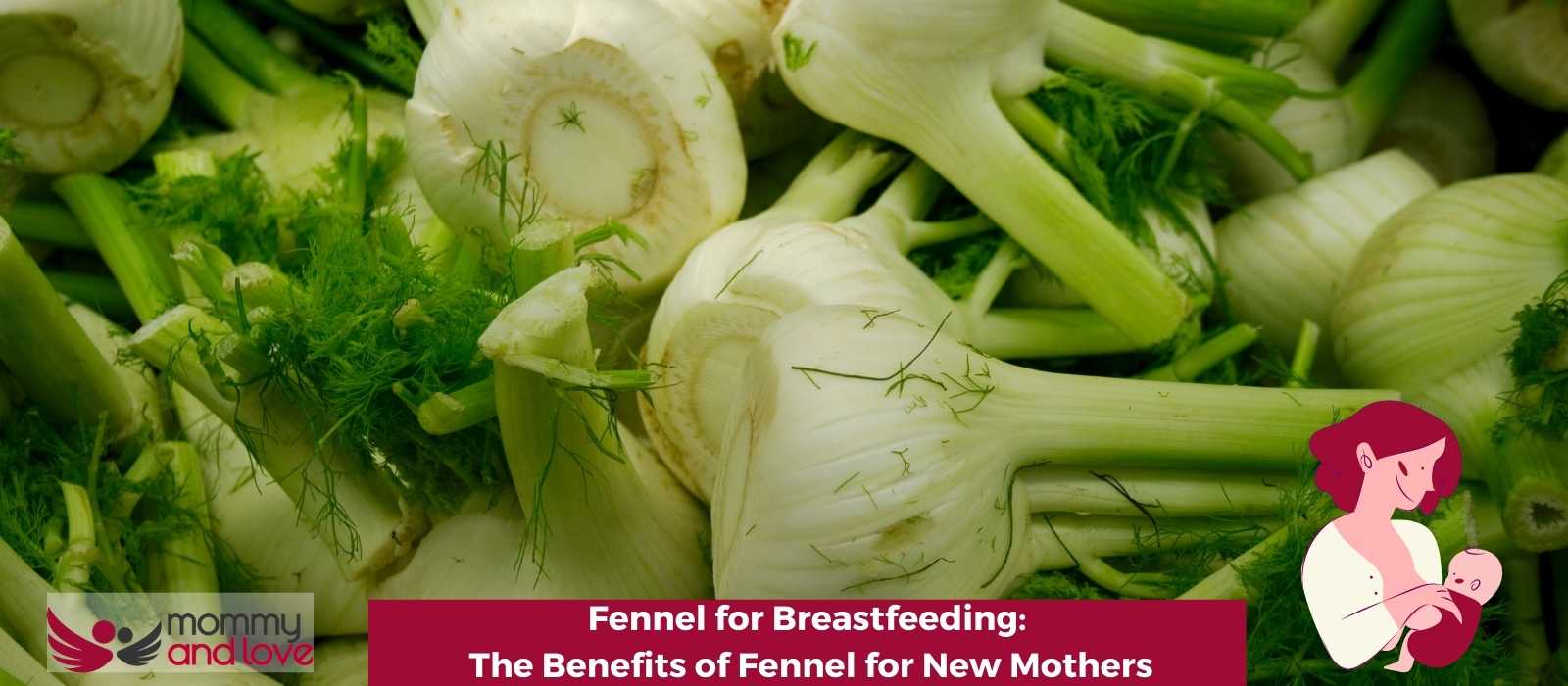If you are a new mother, you may be looking for ways to improve your breastfeeding experience. Fennel is a great herb to consider adding to your diet, as it has many benefits for nursing mothers.
In this blog post, we will discuss the benefits of fennel for breastfeeding mothers and provide some tips on how to include fennel in your diet.
What Is Fennel?

Fennel, Foeniculum vulgare, is a flowering plant species in the carrot family. It is a hardy, perennial herb with yellow flowers and feathery leaves.
Native to the Mediterranean region, it is widely cultivated as an ornamental plant and culinary herb in temperate climates around the world. Its aniseed flavor comes from anethole, an aromatic compound also found in star anise and licorice.
Fennel is used as a flavoring in both sweet and savory dishes as well as eaten raw. The bulb, leaves, and seeds are all edible.
Fennel Oil
Fennel oil is primarily used for its therapeutic benefits. It can be used to help reduce stress and anxiety and promote mental clarity. When used topically, fennel oil can also help to soothe the skin and relieve muscle tension.
Fennel oil is most commonly used in aromatherapy. This natural therapy uses essential oils to promote relaxation and stress relief.
Fennel oil can be diffused in an essential oil diffuser or added to a bath for a relaxing soak.
What Are the Benefits of Fennel While Breastfeeding?
Fennel has a long tradition of being used to promote breast milk supply. It is also thought to be helpful in better digestion and weight management. Let’s take a closer look at some of the benefits of fennel while breastfeeding.
Fennel is a good source of phytoestrogens, which are plant-based compounds that can mimic the effects of estrogen in the body. Estrogen is known to play a role in human milk production, making fennel a valuable herb for nursing mothers.
Fennel is also thought to be helpful in healthy digestion. It has a calming effect on the stomach and can help to relieve gas and bloating. This is a valuable benefit for both mothers and nursing infants, as a happy tummy means happy breastfeeding!
Finally, fennel can also help with weight management. The herb has been shown to boost metabolism and promote satiety. This can be helpful for nursing mothers who are looking to shed some of the pregnancy weight.
Note that lactation fennel can cause allergic reactions after oral or topical use, so make sure you are aware of these before you start adding it to your diet.
So, if you are breastfeeding and looking for a natural way of increasing breast milk supply, or just want to improve your digestion and weight management, fennel may be the herb for you! Give it a try and see how it works for you.
How to Consume Fennel When Breastfeeding?
If you’re breastfeeding, you may be wondering if fennel is safe for your baby. Fennel is a common ingredient in many herbal teas and supplements, and it’s generally considered safe for both mothers and babies.
Fennel Seeds
If you’re looking to add fennel seeds to your breastfeeding diet, the best way is to start with freshly crushed fennel seeds. They contain volatile oil composed largely of phytoestrogen. You can add them to water or tea, or even take them in capsule form (talk to your doctor first).
Warm infusion of fennel seeds have long been used as a digestive aid and can help boost the production of breastmilk in nursing mothers.
Fennel Bulb
Fennel bulbs are an excellent source of dietary fiber, vitamin C, and potassium. It can be enjoyed cooked or raw and makes a great addition to any breastfeeding diet. Here are some tips for incorporating fennel bulb into your breastfeeding diet:
- Add fennel bulbs to soups or stews for added flavor and nutrition.
- Sliced fennel bulbs make a great addition to salads.
- Roasted fennel bulbs are a delicious and healthy side dish.
- Pureed fennel bulbs can be added to smoothies or baby food for an extra nutritional boost.
Fennel Powder

Fennel powder is a powdered form of the fennel herb. It’s used to add flavor to dishes and can be found in many spice blends. It has a slightly sweet and licorice-like flavor.
While powdered fennel is commonly used in Indian cuisine, it can be used in a variety of dishes from all over the world. Try it in a spice blend for grilled chicken or fish, or use it to flavor roasted vegetables. You can even add a teaspoon to your morning smoothie for a boost of flavor.
Fennel Tea
Fennel seed tea is often used as a galactagogue herbal tea, which helps promote lactation. It is also sometimes used to help with indigestion or gas.
Fennel-anise-caraway tea is made by boiling water and adding honey or lemon. It is important to note that fennel teas should not be given to infants or young children. If you are pregnant or breastfeeding, it is best to check with your doctor for breastfeeding advice related to drinking fennel teas.
Does Fennel Increase Milk Supply?
Yes, fennel may help increase human breast milk production.
Fennel is sometimes referred to as a galactagogue, which is a substance that is thought to promote lactation.
One study looked at eighteen lactating women who were experiencing low milk. The women who underwent fennel therapy were given fennel capsules to take three times daily for a period of two weeks and had their milk analyzed.
Mothers collected milk samples were regularly taken in even at different intervals. Breastmilk samples compared to before and after receiving powdered fennel were measured for prolactin levels.
The results of the study showed that fennel was able to significantly increase mothers serum prolactin concentration in women and the milk samples showed that it could affect milk production, it was effective at increasing milk supply.
These findings suggest that fennel may be an effective therapy to boost milk supply in lactating women.
Another study had sixty-six postpartum mothers divided into two groups. One group received an herbal tea containing fennel, and the other group received a similar-looking apple tea without fennel (placebo). The mothers in the herbal tea group received three cups of tea per day for four weeks. During the duration of the study, milk volume and milk fat percentage were measured regularly.
The results of the study showed that there was no significant difference in breast milk supply between the two groups of mothers. However, the herbal group reported higher levels of satisfaction with their breast milk production than the placebo group.
How Much Fennel Should I Take for Lactation?
If you’re consuming fennel for the first time, start with one or two teaspoons of fennel seeds is the usual maternal doses. If you find that consuming too much fennel can cause a decrease in breast milk supply, try consuming it every other day or only consuming it during times when your baby is more likely to be hungry. Consuming fennel is one of the complementary and alternative methods to increase your milk supply.
Conclusion
Even though there’s no conclusive evidence that fennel can increase breast milk supply and the only evidence available is considered anecdotal, it is considered a galactagogue.
You can safely add fennel to your diet. But you should be cautious when buying fennel herbal tea and supplements because they could contain ingredients that might be harmful to you and your baby.
FAQ
Why Breastfeeding Mothers Should Avoid Herbal Medicine?
A large section of the herbal treatments and dietary supplements market is virtually unregulated by the US Food and Drug Administration. That means many popular herbal remedies and treatments haven’t been thoroughly tested for safety or effectiveness. A herbal tea mixture might even contain harmful contaminants. We’ve done a full guide to what foods and drinks are safe when breastfeeding.
Most of them are not properly labeled and actual ingredients are often missing from the packaging.
There’s also a lack of reliable information about how certain herbs might interact with medications, other herbs, or medical conditions. So, while herbal medicines might be generally safe for most people, it’s not necessarily safe for breastfeeding mothers and their babies.
Additionally, some studies suggest that dietary flavour compounds and odorant constituents in herbal tea transferred into breastmilk.
If you’re a breastfeeding mother and you’re considering taking an herbal remedy or treatment, it’s important to talk to a qualified herbalist or naturopathic doctor for professional medical advice and to learn more about which herbs might be right for you. They can help you weigh the risks and benefits, and make sure you’re taking the safest and most effective course of action.
Does Fennel Tea Help a Gassy Baby?
Fennel is a herb that has been used for centuries to help with digestion. Drinking fennel tea produced results. It is thought to help with gas and bloating by relaxing the muscles in the digestive tract.
Some herbal tea preparation research has shown that fennel seed oil emulsion may actually help reduce colic in breastfed colicky infants. If you’re interested in trying fennel teas for your gassy baby, talk to your doctor first.

This article was written by Sandra Baker – full time writer and the mother of four amazing kids (including twins!)
She’s also a breastfeeding counselor and has spent years helping new parents learn how to care for their children. When she’s not writing or caring for her children, Sandra likes to spend time reading and taking walks with her husband.




